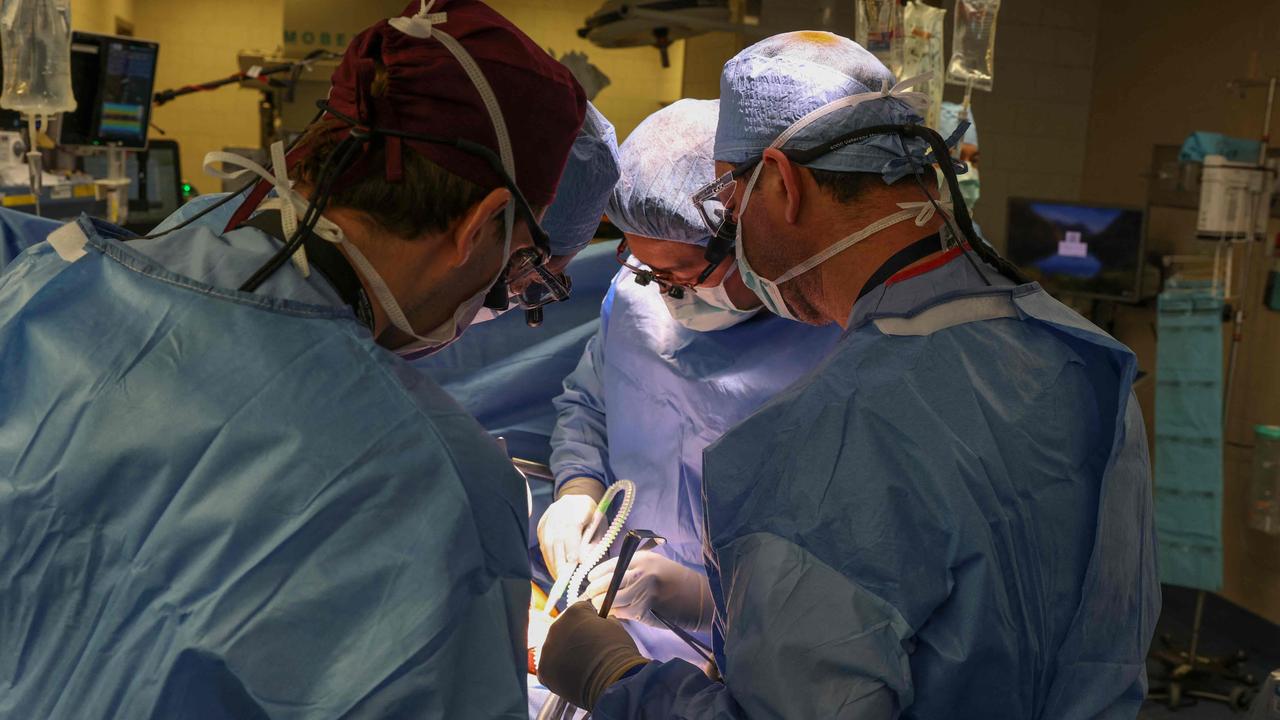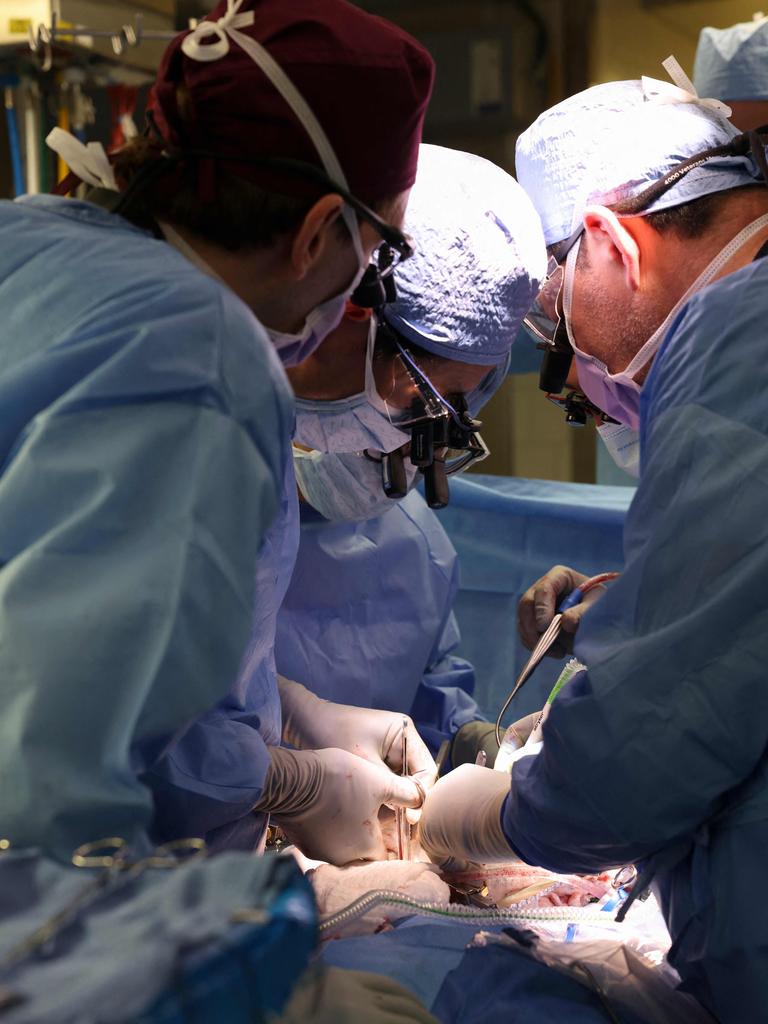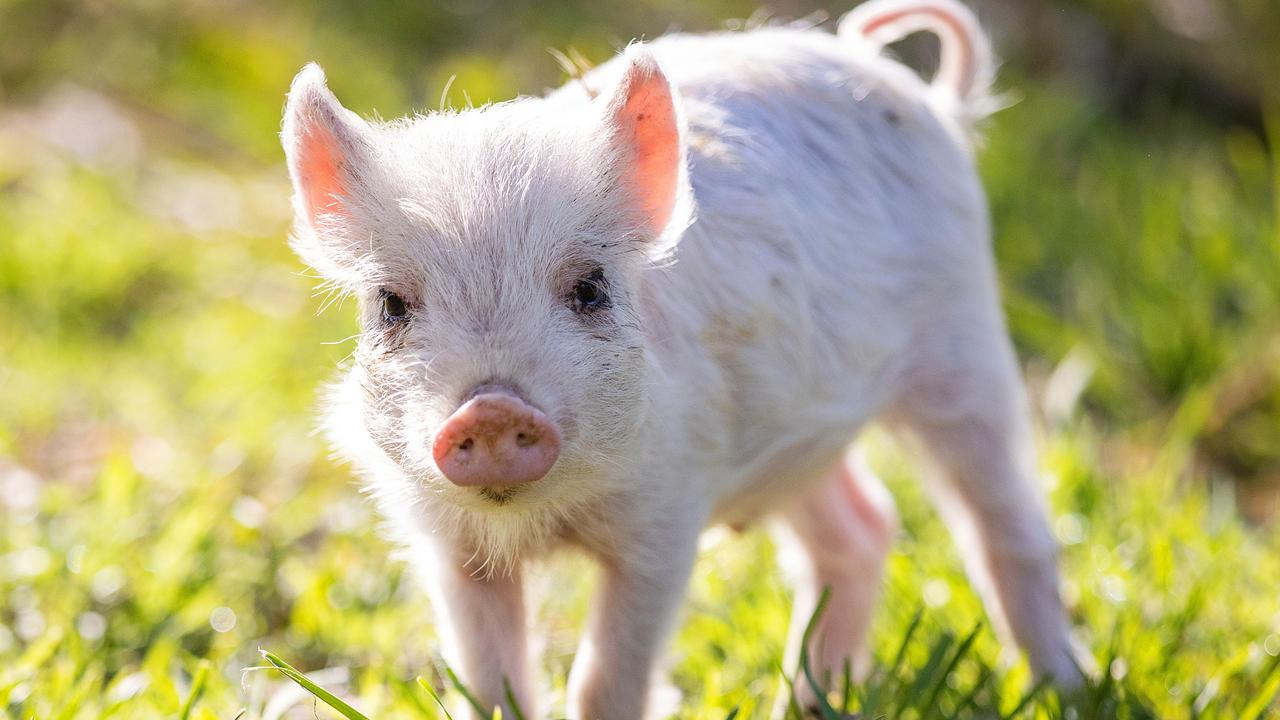World first: human receives kidney organ transplant from pig
In a groundbreaking medical advance, a 62-year-old man has made history as the first human to receive a kidney transplant from a genetically modified pig

READING LEVEL: ORANGE
A 62-year-man with end-stage renal disease* has become the first human to receive a new kidney from a genetically modified* pig, doctors from Massachusetts General Hospital in Boston in the US announced.
The four-hour surgery performed “marks a major milestone in the quest to provide more readily available organs to patients,” the hospital said in a statement.
The patient, Richard Slayman, is recovering well and expected to be discharged soon.
Mr Slayman had received a transplant* of a human kidney at the same hospital in 2018 after seven years on dialysis*, but the organ failed after five years and he had resumed dialysis treatments.

The kidney was provided by eGenesis from a pig that had been genetically edited* to remove genes that could be harmful to a human recipient and add certain human genes to improve compatibility*. The company also inactivated* certain viruses known to be in pigs that have the potential to infect humans.
Kidneys from similarly edited pigs raised by eGenesis* had successfully been transplanted into monkeys that were kept alive for an average of 176 days, and in one case for more than two years, researchers reported.

Drugs used to help prevent rejection of the pig organ by the patient’s immune system* included an experimental* antibody* called tegoprubart, developed by Eledon Pharmaceuticals.
The surgery marks progress in xenotransplantation* (the transplanting of organs or tissues from one species to another) said Dr Robert Montgomery, director of the NYU Langone Transplant Institute.
The medical field “is marching closer to becoming an alternative source* of organs for the many hundreds of thousands suffering from kidney failure,” he said in an email.
A University of Maryland team in January 2022 transplanted a genetically modified pig heart into a 57-year-old man with terminal heart disease*, but he died two months later.
GLOSSARY
- end-stage renal disease: a serious, advanced stage of kidney disease where the kidneys are functioning at a minimal level
- genetically modified: having undergone genetic alteration or engineering
- dialysis: a medical procedure used to remove waste products and excess fluids from the blood when the kidneys are unable to do so
- transplant: the process of transferring an organ or tissue from one person (or species) to another
- genetically edited: the deliberate alteration of an organism’s genetic material
- compatibility: the degree to which two organisms or substances can successfully function together without causing harm or rejection
- inactivate: to render inactive or non-functional
- eGenesis: a company that hopes to end the global transplant shortage by transforming the treatment of organ failure
- xenotransplantation: the transplantation of organs or tissues between different species
- immune system: the body’s defence system against infectious organisms and other invaders
- antibody: a protein produced by the immune system to identify and neutralise foreign substances such as bacteria and viruses
- experimental: relating to a trial, test, or tentative procedure that is not yet fully established or approved
- alternative source: an additional or different origin or supplier of something
- terminal heart disease: an advanced stage of heart disease that is not responsive to treatment and is considered incurable
EXTRA READING
Organ transplants save Aussie kids’ lives
Michael celebrates birthday with the gift of life
Mum gives monster liver to science
QUICK QUIZ
- Who was the first person to receive a kidney from a genetically modified pig?
- What was the name of the hospital where the surgery took place?
- How long had Richard Slayman been on dialysis before receiving the pig kidney?
- What were the pigs genetically edited to remove and add to improve compatibility with humans?
- What experimental antibody was used to help prevent rejection of the pig kidney by the patient’s immune system?
LISTEN TO THIS STORY
CLASSROOM ACTIVITIES
1. Positives and negatives
In this news story, the kidney transplant has been presented neutrally, with the journalist presenting facts. However, many people will have their own views about this type of medicine. Try to consider the topic from different points-of-view to write a list of all of the positives and negatives there could be to support or argue against this type of procedure.
Time: allow 20 minutes to complete this activity
Curriculum Links: English; Science; Ethical Understanding
2. Extension
Write a short story set in the future, where xenotransplantation has gone either amazingly well or terribly wrong.
Time: allow 30 minutes + to complete this activity
Curriculum Links: English
VCOP ACTIVITY
I spy nouns
Nouns are places, names (of people and objects), and time (months or days of the week).
- How many nouns can you find in the article?
- Can you sort them into places, names and time?
- Pick three nouns and add an adjective (describing word) to the nouns.

